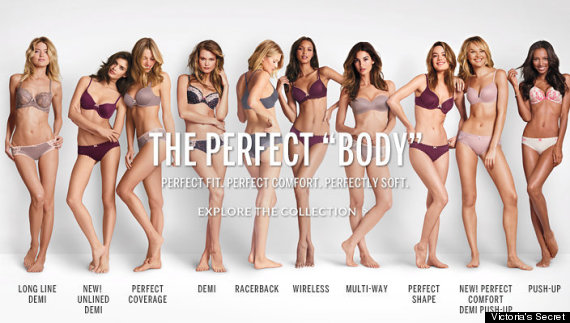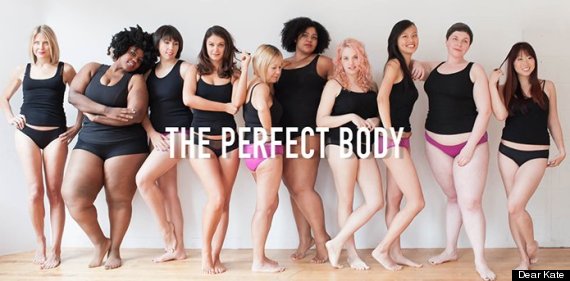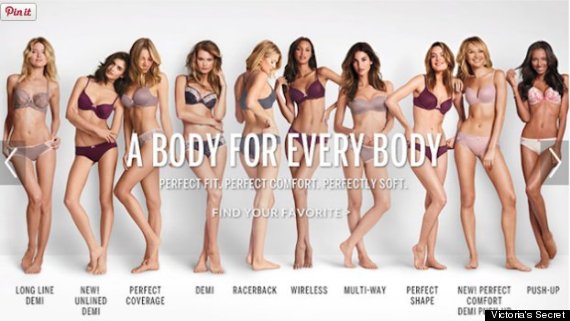A Victoria's Secret ad featuring the tagline "the perfect body" has come under fire -- but maybe the company has been listening to its critics.
Last week, shoppers in the UK were put off by in-store and online advertisements for the VS "body" bra, which featured a series of similarly-built (read: impossibly thin, leggy and large-busted) supermodels. 
A Change.org petition requesting that Victoria's Secret apologize and change the campaign had over 27,000 signatures at the time of writing.
"Every day women are bombarded with advertisements aimed at making them feel insecure about their bodies in the hope that they will spend money on products that will supposedly make them happier and more beautiful," the petition reads. "All this does is perpetuate low self-esteem among women who are made to feel that their bodies are inadequate and unattractive because they do not fit into a narrow standard of beauty. It contributes to a culture that encourages serious health problems such as negative body image and eating disorders."
Another response to the campaign came from underwear brand Dear Kate, who released their own "perfect body" ad -- featuring diverse women of all sizes.

"Through this photo, we showcase women who are often neglected by the media and traditional retailers," the blog post introducing the image on the Dear Kate website says. "We show the multitude of shapes perfect bodies can take."
The pushback from customers and critics seems to have worked. As of today, the ad on the Victoria's Secret website features a new slogan -- "a body for every body."

According to Rossalyn Warren at BuzzFeed, the original slogan is still up on posters in U.K. stores, and Victoria's Secret has yet to make a statement about the campaign.
We Need Your Support
Already contributed? Log in to hide these messages.
This change is far from perfect -- ideally, the women in Victoria's Secret ads would vary at least somewhat in body shape, height and weight.
It's refreshing to hear that Victoria's Secret is actually listening to unhappy customers and making changes to problematic ad campaigns -- but there's still a ways to go with this particular concept. Changing the delivery doesn't address the problematic rationale for the ad, which is precisely what the ad's critics are aiming at.
